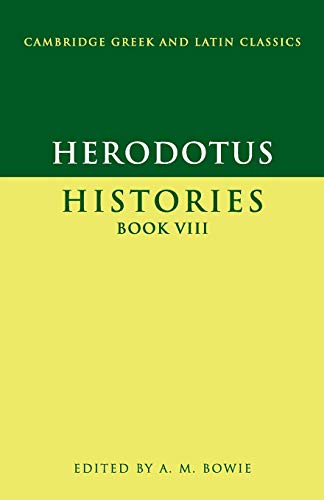Grammatical Commentary - GREK 301 - S23
Grammatical Commentary

Key Details
- Due: February 14, 12:30 PM
- Format: Google Docs (share with me via email)
- Possible Points: 150
Over the course of this semester, we will be working on a series of commentaries on an important passage from Book 8 of Herodotus’ Histories in which the historian defines what it means to be Greek. The point of doing these various commentaries on 8.144 is to investigate different aspects - grammatical, historical, contextual, and cultural - of the passage in order to dig deeper into its meaning.
Since writing a commentary will be a new experience for many of you, we will spend some time throughout the semester looking at different commentaries to get an idea of how to approach the task. While we discuss this in detail in class, here are some things to bear in mind:
1) You do not need to comment on everything – you can and should be selective in the things that you choose to write about. I would rather you investigate a few things in depth than superficially touch a large number of topics. (NB: the exception to this rule is the grammatical commentary - you will want to explain in detail the grammatical features of the passage).
2) Focus on small details before moving onto larger questions. This might mean taking a deep-dive into a particular word/letter or an obscure figure. Often, it is these smaller observations that can produce far-reaching insights.
3) Commentary entries can take many forms. They may be informative (i.e. explaining a factual situation); they may be interpretive; they may be exploratory. One of the fun parts about creating a commentary is that you don’t have to arrive at a definite answer, your job is to help the reader understand the nuances and complexities of the text.
The first commentary that you will do on Herodotus 8.144 this semester will be grammatical in nature. Here your job will be to explain the grammatical nuts and bolts of the passage. You will explain any relevant grammatical constructions, morphological oddities (particularly important for Herodotus since he writes in Ionic), or lexicographical difficulties that you feel would be helpful to students who are looking at this for the first time. For example, you will want to point out why certain verbs are in the subjunctive, why a certain noun is in the genitive, so that your readership can arrive at a better understanding of the sentence and how to translate it.
In order to do this effectively, you will need to consult Smyth’s Greek Grammar. Using the index and table of contents, you can look at various grammatical constructions such as the various uses of the subjunctive in dependent and independent clauses, the functions of the genitive and the like. It will also be useful to consult the commentary of How and Wells as well as the LSJ in order to understand if there are any morphological or lexicographical differences necessary to understand the passage.
In terms of nuts and bolts of what you will need to submit, please include in the Google Doc that you submit a) the passage in Greek; b) your own translation of the passage; c) your commentary. As far as formatting is concerned, some examples of how you might lay out your commentary can be found here and here.
Assessment
A successful project will:
- Be shared with me on Google Docs by February 14 at 12:30 PM
- Identify important grammatical constructions (e.g. uses of alternative moods, uses of indirect speech, expressions of result, verbal nouns) within the passage
- Comment on any grammatical irregularities in the passage
- Identify any morphological oddities for someone who is unfamiliar with Ionic dialect
- Point out any lexicographical problems with the passage
- Refer to and cite any relevant passages in Smyth’s Greek Grammar, the LSJ, or How and Wells’ commentary
- Provide an accurate translation of the passage